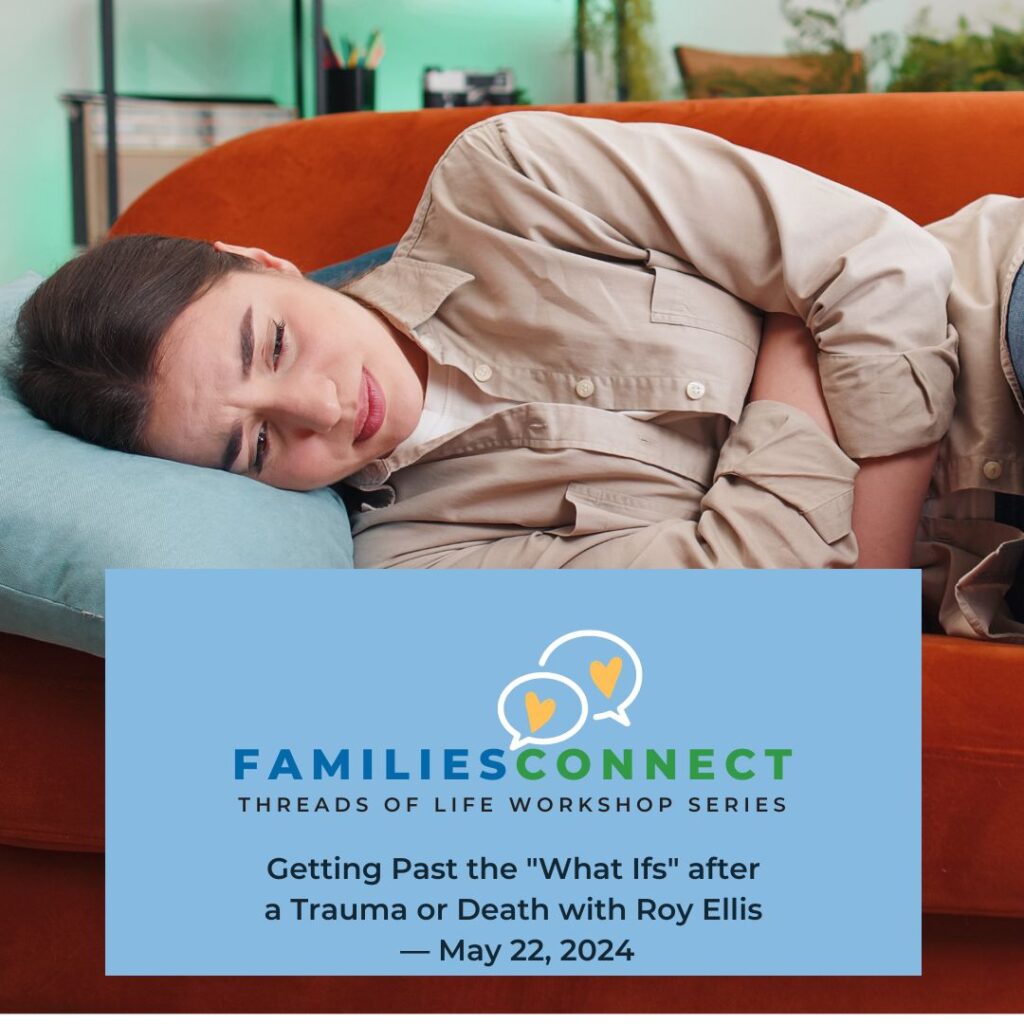 Donna sits across from me gripping her purse with white knuckles. This is her first visit for grief counselling and the guilty energy that surrounds her is palpable. One Saturday morning, her husband Dave received a call at home asking if he wanted to take an extra work shift on his day off. As the two of them lay in bed, Donna reminded him they were saving for a winter getaway to Cancun, and the extra money would help.
Donna sits across from me gripping her purse with white knuckles. This is her first visit for grief counselling and the guilty energy that surrounds her is palpable. One Saturday morning, her husband Dave received a call at home asking if he wanted to take an extra work shift on his day off. As the two of them lay in bed, Donna reminded him they were saving for a winter getaway to Cancun, and the extra money would help.
So, Dave took the extra shift.
Six hours later Dave was dead on the job site. There had been a spill of a noxious chemical and Dave was overwhelmed by the fumes in a tight space. Initially, Donna was bewildered and angry at the company whose safety practices had been breached. But after a few weeks, she began to remember how she had prodded Dave to pick up the shift, thus “sending him to his doom”. If only she had just let the poor guy rest a little on the weekend. If she hadn’t been thinking so much about the extra money. Why hadn’t she let him make up his own mind? She knew it was a dangerous job at the best of times… Donna was torturing herself with such thoughts, and at a certain point it became too much for her emotionally and she began to feel deeply depressed, rageful and self-loathing.
For those workers who survive a tragic incident and who carry the wound of a workplace tragedy, it can also be hard to ponder how the moment could have been avoided. We may ask ourselves if we were safe enough, mindful enough if we did everything in our power to make sure we were out of harm’s way? We can be cruel and punishing toward ourselves at times, aware that small oversights may have changed our lives and our family’s lives forever.
The “what ifs” rarely help us get through grief, but almost nobody escapes them. It can be especially challenging if the surviving person feels their action or inaction was tangled up with the incident or death. We can wonder why we didn’t stress to our loved ones that they should be more careful, or we may have felt lulled into a sense of safety and have stopped even thinking that the worksite was dangerous. We can feel like we just dissociated from the lethality of the workplace and in so doing abandoned our spouse to their fate. There are a million ways to feel guilty about a loss.
After a trauma or death, our mind conducts an audit of the days and hours leading up to the loss. When this happens, we can find ourselves stuck in an endless replay of the events and all the possible interventions and actions that we might have taken to change history and prevent the moment from happening. Such thoughts are normal and natural, but if we become stuck in these ‘what if’ loops indefinitely, we can prolong our grief and delay our healing.
‘What if’ loops are deeper than questions and regrets. Amid these ponderings, we can question our core goodness, aggressively blame ourselves for not protecting those we love, and marinate in rage and anger at ourselves and others for not preventing the loss.
Working with blame and guilt demands that we apply fierce self-compassion to ourselves. That we make a decision to love and be tender with ourselves, and to then be persistent and committed to approaching ourselves with grace. There is no psychological magic here. It is in our hands whether we continue to treat ourselves aggressively or with kindness and understanding.
Gently moving from blame, rage and what-ifs to experience our grief is a tricky business. It asks us to move into the present and away from the past. It requests that we land in the loss of the moment, right here where the pain is, which is exactly where we don’t want to be. This work is done tenderly and carefully, and always with others. Every great emotional burden must be carried by more than one heart.
Donna was able to stop attacking herself for urging Dave to take the shift, when she remembered that neither she nor her husband planned for him to die that day. He wanted that Cancun vacation as much as she did, but he never would have traded his life for it. What happened to Dave was a result of a workplace safety failure, and had nothing to do with Donna, Cancun or fate.
Click here to register to join Roy for the next FamiliesConnect session “Getting Past the “What Ifs” after a Trauma or Death” on May 22nd. To check your local time, click here.
- Getting Past the “What Ifs” after a Trauma or Death - May 1, 2024
- Spirituality and Getting Unstuck - June 3, 2021
- Men in Grief: Self-Care is for You Too! - July 16, 2020

 Find Support
Find Support Donate
Donate